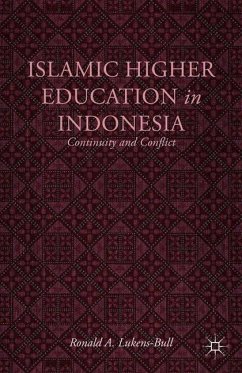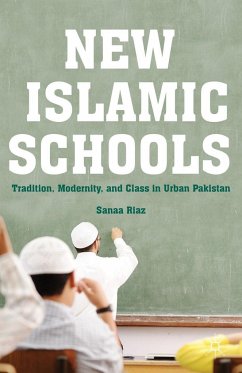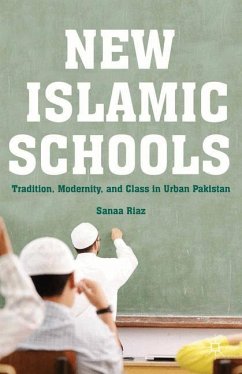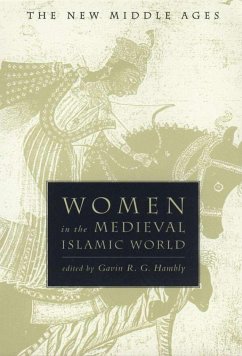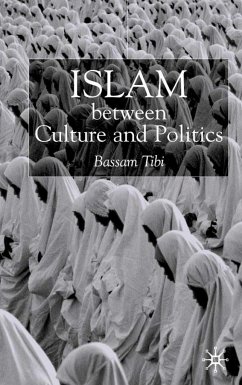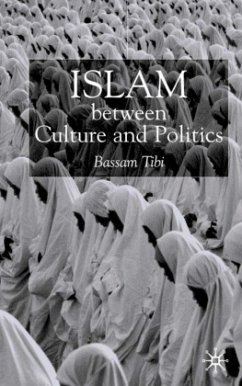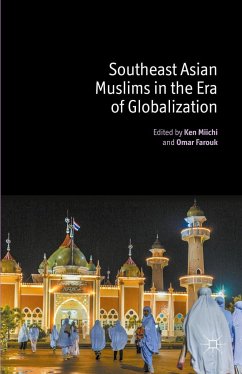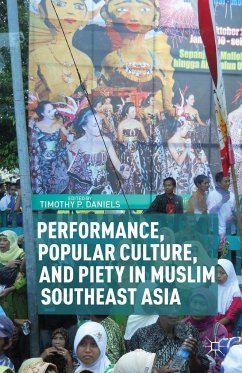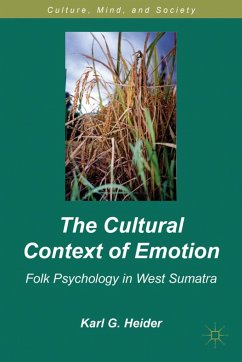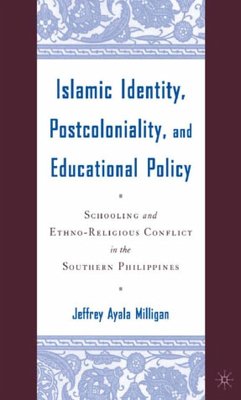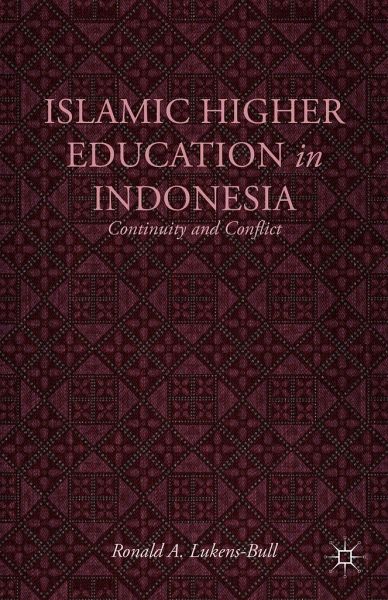
Versandkostenfrei!
Versandfertig in 6-10 Tagen
Weitere Ausgaben:

PAYBACK Punkte
19 °P sammeln!





This project looks at the work of the faculty in Indonesia's National Islamic Institutes to address, respond, and prevent the success of radical Islamic discourse and institution of Shari'a law in the school system.
Ronald A. Lukens-Bull is Associate Professor of Anthropology, Department of Sociology-Anthropology, University of North Florida, USA.
Produktdetails
- Verlag: Palgrave Macmillan / Palgrave Macmillan US / Springer Palgrave Macmillan
- Artikelnr. des Verlages: 978-1-137-30857-3
- 2013
- Seitenzahl: 179
- Erscheinungstermin: 19. November 2013
- Englisch
- Abmessung: 218mm x 140mm x 23mm
- Gewicht: 355g
- ISBN-13: 9781137308573
- ISBN-10: 1137308575
- Artikelnr.: 39401649
Herstellerkennzeichnung
Libri GmbH
Europaallee 1
36244 Bad Hersfeld
gpsr@libri.de
"Across the Muslim world, Islamic higher education is today a site for both the guardianship and the refiguring of religious knowledge and identity. In this timely book, Ronald Lukens-Bull provides us with an overview of Islamic higher education in Indonesia, a vast country that has one of the world's most reform-minded Islamic educational systems. Islamic higher education is also the site of fierce culture-war contestation over what Islam in Indonesia is to become. Engagingly written, Lukens-Bull's book raises questions of pivotal importance for the future of education, intellectual life, and politics in Indonesia and the Muslim world as a whole." - Robert W. Hefner, Director, Institute on Culture, Religion, and World Affairs, Boston
Mehr anzeigen
University, USA
"Muslim societies are trailing behind many developed societies in terms of investment in research and higher education. Ronald A. Lukens-Bull's study of higher education in Indonesia is important at two levels. Firstly Indonesia has made major strides in raising literacy rates and creating a higher education system, but Lukens-Bull offers a clear insight into the remaining and unsolved tensions between preserving a religious tradition and preparing students for a rapidly changing society. Secondly he offers a solution to the puzzle one Islam or many? by showing how we can think of Islam as both generic language (langue) and an assembly of dialectics (parole). The result is a major achievement in clarifying the dynamic and often contradictory relationships between religion, education, and social change." Bryan S. Turner, The Graduate Center, CUNY, USA
"Muslim societies are trailing behind many developed societies in terms of investment in research and higher education. Ronald A. Lukens-Bull's study of higher education in Indonesia is important at two levels. Firstly Indonesia has made major strides in raising literacy rates and creating a higher education system, but Lukens-Bull offers a clear insight into the remaining and unsolved tensions between preserving a religious tradition and preparing students for a rapidly changing society. Secondly he offers a solution to the puzzle one Islam or many? by showing how we can think of Islam as both generic language (langue) and an assembly of dialectics (parole). The result is a major achievement in clarifying the dynamic and often contradictory relationships between religion, education, and social change." Bryan S. Turner, The Graduate Center, CUNY, USA
Schließen
Für dieses Produkt wurde noch keine Bewertung abgegeben. Wir würden uns sehr freuen, wenn du die erste Bewertung schreibst!
Eine Bewertung schreiben
Eine Bewertung schreiben
Andere Kunden interessierten sich für


